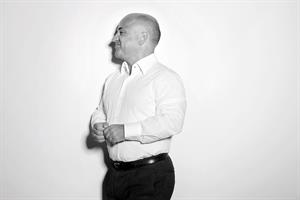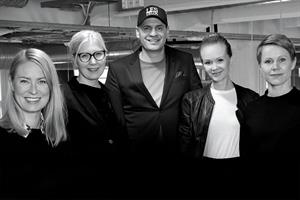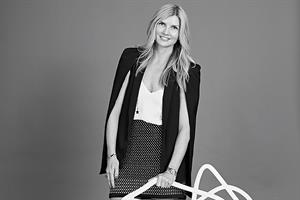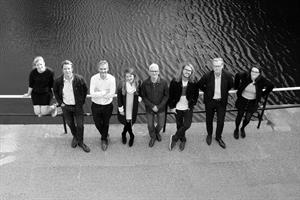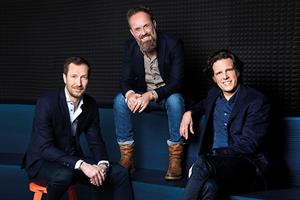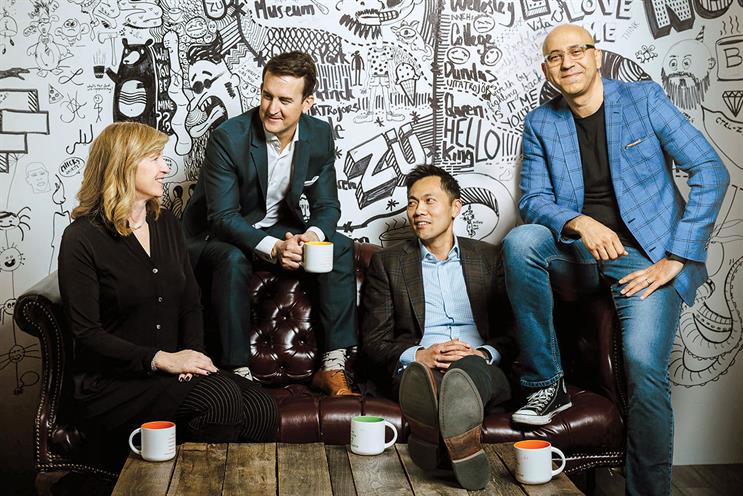
Before starting Zulu in 2008, I worked at a successful agency in Toronto, eventually becoming an equity partner. But after nine years, I experienced a mid-life career crisis and couldn’t stop thinking about starting my own creative shop.
Friends told me I would be crazy to walk away. Not just because I’d be leaving a future payout on the table (they sold three years after I left), but that taking the entrepreneurial leap at 41 was too "late" in my career. To make the timing even worse, the economy was in a recession.
"The world doesn’t need another agency," was my peers’ collective advice. I finally mustered up the courage to quit after being inspired by a quote in a business article about the best time to leave a job: "The fear of quitting is far worse than the reality." As I read this, I imagined myself at 50, regretting that I’d let fear and convention hold me back. It was just the epiphany I needed to do the opposite of what was expected and go out on my own.
People start agencies for many reasons. To feed our egos. We want our names on the door. Some are serial entrepreneurs who like building something and moving on to the next thing. Many of us – especially those, like me, who spent decades at other agencies – set out on our entrepreneurial journey because we also began to question long-established ways of doing things.
A game-changer for us was challenging the most antiquated of them all: the dreaded RFP. Our viral videos ‘Say No to Spec’ and ‘World’s Worst RFP’ helped shine a global spotlight on how flawed the process really is. Both were inspired by the last spec pitch we worked on, eight years ago.
When we got the call from the prospective client in 2011, we were one of the final two and feeling over the moon. The pitch consultant told us our ideas were "head and shoulders better" than the other finalist. Then came the news that brought us back down to earth. Our spec creative had scored highest, but in the end the client couldn’t award us the business since we didn’t have an office outside of Toronto. It was a prerequisite never disclosed in the RFP. All the creative resources we poured into that pitch had no impact on the final decision.
Carve out your own path to success
Completely gutted, we could have licked our wounds and continued on the same well-trodden new business path. Instead, we vowed to never participate in a spec pitch again. This cemented our belief that it’s simply not the best way to choose a partner. Having a no-spec pitch policy wouldn’t be sustainable, according to our sceptics. Yet eight years later, we’ve had clients remove spec work from their RFPs to accommodate our position. Many have even awarded us their business without a pitch.
When I think of the business ideas that fuelled our growth, they all have one thing in common: everyone advised us not to do them.
Like resigning a difficult client, despite it being one of our biggest and most high-profile. That decision freed us to focus on other existing clients who valued our partnership more, and we still grew that year. Or when we launched our agency website as a "fictional" parody of all the flawed principles we fight against every day as an independent. People within our own shop worried it would piss clients off. Without providing any information about the real Zulu, it ended up attracting like-minded clients and talent with its telling humour.
Know what you’re fighting against as an indie
Since the Mad Men era, we’ve all mindlessly accepted our industry’s conventions. How’s this working out? Management consultancies have encroached on creative services. More clients have been setting up in-house shops. AI software purports to make better decisions on advertising than humans.
However, if we’re honest with ourselves, the actual threats facing our industry aren’t new competitors. It is complacency and fear that festers from within.
So to borrow from that quote: the fear of doing the opposite is far worse than the reality. Contrary thinking ingrains fearless and counterintuitive decision-making into your DNA. It breeds an agency that’s uncompromising and sticks to its values, distinguishing your offering and acting as a virtual colander in filtering out the right clients and talent. Doing the opposite also reminds us why we set out to be entrepreneurs in the first place.
True, the world doesn’t need more agencies; just more independently minded ones.
At a glance...
• Founded 2008
• Principles Amanda Mroueh, operations director; Mike Sutton, president; David So, chief financial officer and COO; Zak Mroueh, founder and chief creative officer/CEO
• Staff 120
• Location Toronto, Canada
Q+A
What’s the best work you’ve seen in the past 12 months?
Client bravery. Social consciousness. Increased sales. Nike’s Kaepernick campaign had it all. Even the share price hit all-time highs. Textbook brilliant.
What’s the best application of Voice you’ve heard?
"OK Google, what is the Whopper burger?" is a modern classic. It opened a new creative door for voice in the same way that Volkswagen’s "Lemon" did for print.
What will make the biggest impact on your agency this year?
Staying true to our values. They become more deep-rooted with each passing year, helping to preserve our culture and reputation with clients.
How can agencies keep great people?
Great people stay if they believe in the agency’s values and mission. Create a career path for your stars and a roadmap for them to achieve their ambitions
Zak Mroueh is founder and chief creative officer/CEO at Zulu Alpha Kilo, Toronto



